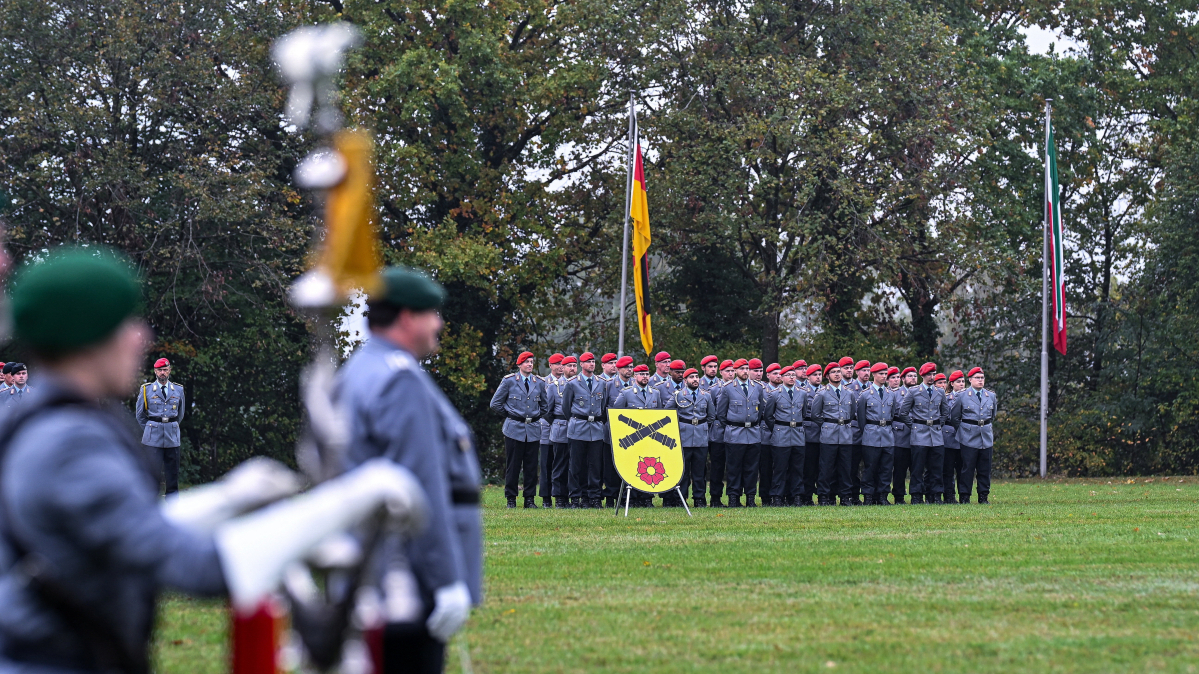Mexico confirms World Cup venues unchanged after cartel leader killing
Mexico’s President Claudia Sheinbaum on Thursday thanked FIFA and its president, Gianni Infantino, for reaffirming that the country’s 2026 World C...

Germany’s defence minister Boris Pistorius says he is confident the coalition will back his new voluntary military service model in time for it to take effect next year, citing the security threat from Russia and NATO demands.
Germany is moving to revive a form of national service as Defence Minister Boris Pistorius pushes a plan to increase troop numbers and prepare the country for a more dangerous security environment. He told Reuters on Saturday that despite resistance inside the ruling camp he believes the law can be passed and applied from the start of next year, arguing that “everyone is aware of the seriousness of the situation.”
The cabinet has already approved his blueprint for a voluntary service that would help the Bundeswehr recruit more active soldiers and build up a trained reserve. The proposal still needs the backing of the Bundestag and has faced objections from some Social Democrats and from parts of Chancellor Friedrich Merz’s conservatives, but Pistorius insisted the timetable remains realistic and tied it directly to Germany’s obligations inside NATO and to the threat posed by Russia.
Pistorius last month ruled out a compromise that would have introduced a conscription lottery for young men whenever voluntary recruitment fell short. He said such a system would appear arbitrary, risk alienating younger Germans and pull in recruits who were not motivated. “We must convince the younger generation with arguments instead of frustrating them,” he said, adding that the armed forces have to show why “a strong army that is a deterrent to states such as Russia” is worth supporting.
A central feature of his concept is a universal medical assessment of young men. Pistorius said this was non negotiable because in the event of an attack or a rapid mobilisation Germany must know in advance who can serve quickly in homeland defence units and who cannot, rather than spending crucial days on screening. Germany scrapped compulsory military service in 2011 and since then the Bundeswehr has struggled to stabilise personnel levels.
The minister wants to lift the size of the force from the current 180,000 to around 260,000 by the early 2030s to meet new NATO force structure targets and to make Germany’s defence more credible. That target is part of Berlin’s broader increase in defence spending after Russia’s full scale assault on Ukraine, with the government arguing that a larger pool of trained citizens is now a strategic necessity for Europe’s largest economy.
Pistorius also confirmed that Germany is accelerating work on new battlefield technology. He said the Bundeswehr is testing loitering munitions, often called “kamikaze drones,” from three companies and aims to complete the trials by the end of this year before selecting a system and sending a procurement request to parliament. The move comes after the weapons proved highly effective in the conflict in Ukraine, where both Russian and Ukrainian forces use them to hit armour, air defences and headquarters.
Some German politicians have previously been wary of these systems because they associate them with targeted killings carried out by U.S. forces in places such as Afghanistan. Pistorius argued that Germany now has to close the capability gap. He said that no contract has yet been awarded, responding to reports that start ups Helsing and Stark and defence group Rheinmetall could receive roughly 300 million euros each for such drones, and stressed that Berlin will decide only after the tests are finished.
A F-16 fighter jet of the Turkish Air Force crashed near a highway in western Türkiye early on Wednesday (25 February), killing its pilot, officials and media reports confirmed.
U.S. President Donald Trump declared a “golden age” for America in his first second-term State of the Union on Tuesday evening, delivering the longest-ever address at more than 90 minutes. Here are the main takeaways.
President Donald Trump delivered the first State of the Union address of his second term to Congress on Wednesday (25 February), declaring that America’s “golden age” had begun and that the country was experiencing a “turnaround for the ages.”
Start your day informed with AnewZ Morning Brief. Here are the top news stories for the 25th of February, covering the latest developments you need to know.
Peace-making has a habit of creating new enemies - especially when it reduces someone else’s leverage. As Azerbaijan and Armenia move toward a settlement architecture that no longer depends on Moscow as the indispensable broker, pressure has not vanished; it has shifted shape.
Mexico’s President Claudia Sheinbaum on Thursday thanked FIFA and its president, Gianni Infantino, for reaffirming that the country’s 2026 World Cup host venues will remain unchanged, following violence that erupted after the killing of a major cartel leader.
A student from Azerbaijan was detained by U.S. immigration agents inside a Columbia University residential building on Thursday morning, was released later the same day after New York City Mayor Zohran Mamdani raised her case directly with President Donald Trump.
Argentina and Uruguay on Thursday became the first founding members of the Mercosur bloc to ratify a long-awaited free trade agreement with the European Union, paving the way for one of the world’s largest free trade zones.
Nuclear negotiations between the United States and Iran in Geneva have been described as “positive”, according to a report by Axios citing a U.S. official.
The United States is expected to deploy six additional aerial refuelling aircraft to Israel as Washington continues to strengthen its military presence in the Middle East while nuclear negotiations with Iran remain under way.
You can download the AnewZ application from Play Store and the App Store.

What is your opinion on this topic?
Leave the first comment